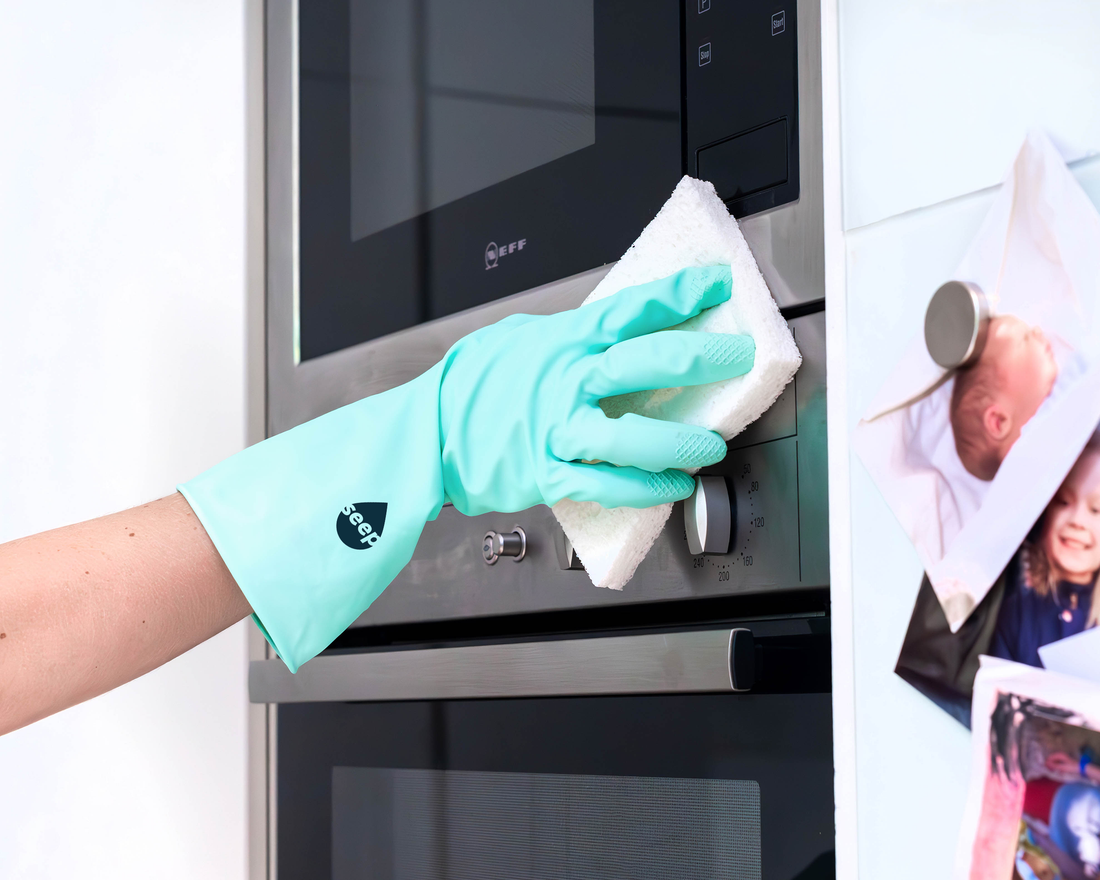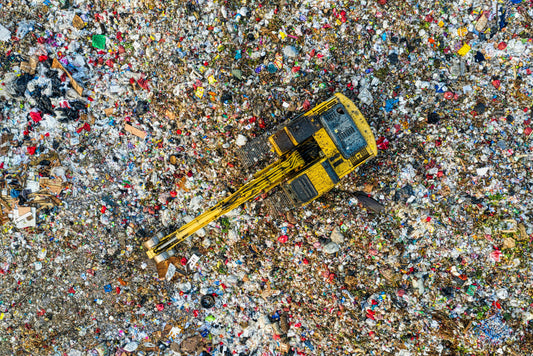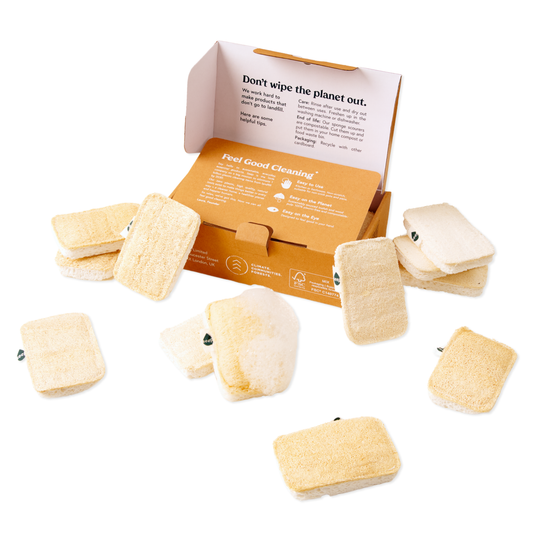
Most pop-up sponges are made from cellulose, a plant-based fibre, which is derived from wood pulp or cotton. Cellulose is a natural polymer, known for its ability to absorb and retain water, making it an ideal material for sponges.
Compressed sponges are sold in a flat, thin shape, as that makes them lightweight and easy to store, and therefore popular for both household and industrial cleaning due to the convenience and environmental-friendliness.
They expand when exposed to water, but how does that happen exactly?
How do compressed sponges work?
- Manufacturing: The sponge is first produced in a porous, expanded form. The air is trapped in the sponge fibres during this stage, which gives it its absorbent quality.
- Compression: The sponge is heavily compressed, usually through a combination of heat and pressure that removes most of the air and water content.
- Expansion: When you add water to the compressed sponge, the cellulose fibres absorb the liquid and swell. The cellulose fibres act like tiny capillaries, pulling the water into the material. The water molecules enter the spaces between the fibres, causing the sponge to expand rapidly. The sponge "pops up" and expands back to its original thickness and texture, becoming soft and absorbent.
What are the benefits of a compressed sponge?
- Practicality: Since compressed sponges are flat when dry, they take up far less space than regular sponges, offering compact storage and transport. They are often used in kits or travel packs for this reason.
- Sustainability: Most pop-up sponges are biodegradable and compostable, as they are made from natural materials. This makes them a sustainable alternative to synthetic sponges.
- Reusability: Pop-up sponges can be washed and reused multiple times. You can freshen them up in the dishwasher or washing machine.
- Versatility: Pop-up sponges are commonly used for washing dishes, cleaning countertops and general surface cleaning. Their softness makes them safe for delicate and non-stick surfaces. Smaller, more delicate versions of pop-up sponges are also used in cosmetics for applying or removing makeup, and in medical environments for cleaning wounds and applying antiseptics.
- Durability: Pop-up sponges are designed to last longer than traditional foam or synthetic sponges. However, since they are made from natural materials, they will eventually break down, especially if they are used with harsh chemicals or abrasively scrubbed.







